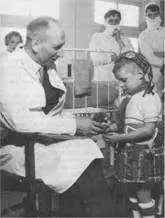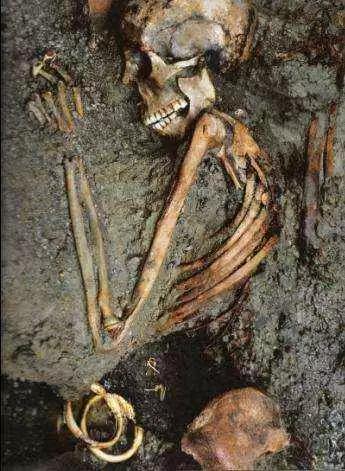Celiac.com 11/06/2008 - Previously, the possible link between gut bacteria and celiac disease has been discussed in "Open Original Shared Link"[1] A 5-year European study, DIABIMMUNE, is currently underway focusing on some 7000 children, from birth, investigating the development of intestinal bacterial flora and its influence on the development of the human immune system and autoimmune disease, including celiac disease.[2] Hopefully, this study will provide some much needed answers. Now a Spanish group of scientists has produced further evidence supporting a possible role for gut bacteria in the pathogenesis of celiac disease by investigating whether gut microflora present in the feces of celiac disease patients participates in the pro-inflammatory activity of celiac disease.[3]
The makeup of fecal microflora in celiac disease patients differs significantly from that of healthy subjects. To determine whether gut microflora is a participant in the pro-inflammatory milieu of celiac disease, the Spanish research team incubated cultures of peripheral blood mononuclear cells from healthy adults with fecal microflora obtained from 26 active celiac disease children, 18 symptom-free celiac disease children on a gluten-free diet, and 20 healthy children. The scientists additionally investigated possible regulatory roles of Bifidobacterium longum ES1 and B. bifidum ES2 obtained from the feces of healthy individuals, co-incubating the Bifidobacterium with the test subject fecal microflora and the peripheral blood mononuclear cell culture.
Celiac.com Sponsor (A12):
Fecal micrflora from both active and, notably, treated, symptom-free celiac children caused a significant increase in pro-inflammatory cytokine production and a decrease in anti-inflammatory IL-10 production in the peripheral blood mononuclear cell cultures compared to the fecal microflora from healthy children. However, cultures co-incubated with the Bifidobacterium strains exhibited a suppression of the pro-inflammatory cytokine production and an increase in IL-10 production. IL-10 is a cytokine which promotes immune tolerance.
The scientists concluded that the makeup of the gut flora of celiacs may contribute to pro-inflammation in celiac disease, possibly in a synergy with gliadin, and that certain strains of Bifidobacterium appear to suppress and reverse pro-inflammatory effects and offering therapeutic opportunities for the treatment of celiac disease.
It would have been interesting if the scientists had also investigated the effect of adding vitamin D to the fecal microflora and the peripheral blood mononuclear cell cultures. It is likely the addition of vitamin D might also have resulted in a suppression of pro-inflammatory cytokine production and an increase in IL-10 production. This is borne out by experiments with Mycobacterium tuberculosis and its culture filtrate antigen in peripheral blood mononuclear cell cultures where the addition of vitamin D resulted in a suppression of pro-inflammatory cytokine production and an increase in IL-10 production.[4] It is possible that celiac disease may be entirely prevented in infancy by routinely administrating prophylactic doses of vitamin D and probiotics containing specific strains of Bifidobacterium before gluten is introduced into the infant's diet. The vitamin D and Bifidobacterium strains may provide an IL-10 anti-inflammatory environment in which the immune system learns to respond tolerantly to gluten, forever preventing the onset of celiac disease.
The fact that certain strains of fecal Bifidobacterium from healthy individuals appear to suppress celiac disease inflammation brings to mind the concept of "fecal bacteriotherapy" or "fecal transplant", a therapy developed and used in practice by the world reknown Australian gastroenterologist, Prof. Thomas J. Borody, M.D., known best for his development of a triple-antibiotic treatment for H. pylori and ulcerative colitis.[5] Fecal bacteriotherapy involves transplanting feces from a healthly, screened donor into an ailing patient with a persistant bacterial gastrointestinal disorder whose own gut flora has first been reduced or eliminated with antibiotics. The fecal microflora from the healthy donor reseeds the gut of the ailing patient with a healthy mix of intestinal microflora curing the gastrointestinal disorder. The Bifidobacterium research done by the Spanish researchers suggests that fecal bacteriotherapy might be an option to treat or cure celiac disease in adults, replacing gut flora causing intolerance to gluten with a healthy mix of gut flora that encourages tolerance to gluten.
Sources
[1] Do Vitamin D Deficiency, Gut Bacteria, and Gluten Combine in Infancy to Cause Celiac Disease?
Roy S. Jamron
https://www.celiac.com/articles/21605/
[2] European Study Will Focus On Relation Of Gut Bacteria to Autoimmune Disease in Children
Roy S. Jamron
https://www.celiac.com/articles/21607/
[3] Journal of Inflammation 2008, 5:19.
Bifidobacterium strains suppress in vitro the pro-inflammatory milieu triggered by the large intestinal microbiota of coeliac patients.
Medina M, De Palma G, Ribes-Koninckx C, Calabuig M, Sanza Y.
Open Original Shared Link
[4] J Clin Immunol. 2008 Jul;28(4):306-13.
Regulatory role of promoter and 3' UTR variants of vitamin D receptor gene on cytokine response in pulmonary tuberculosis.
Selvaraj P, Vidyarani M, Alagarasu K, Prabhu Anand S, Narayanan PR.
Open Original Shared Link
[5] Prof. Thomas J. Borody, M.D., Bio and Publication List Open Original Shared Link Open Original Shared Link












Recommended Comments